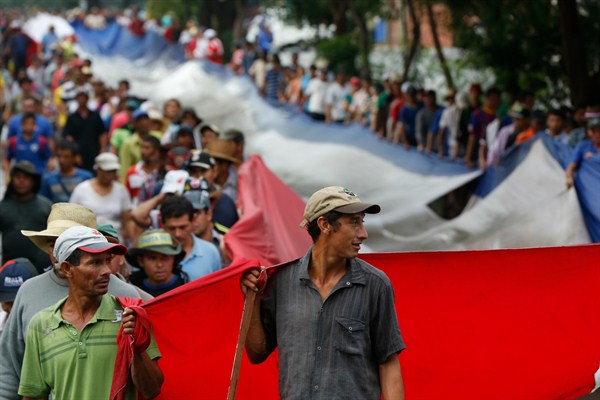Earlier this month, hundreds of people marched in Asuncion, demanding the resignation of Paraguayan President Horacio Cartes and denouncing widespread government corruption. In an email interview, Mercedes Hoffay, a program manager at Global Americans and Christopher Sabatini, a lecturer of international and public policy at Columbia University’s School of International and Public Affairs and the executive director of Global Americans, discuss Cartes’ leadership and politics in Paraguay.
WPR: How successful has Cartes been at following through on his 2013 election promises, namely growing the economy and reducing crime?
Mercedes Hoffay and Christopher Sabatini: Cartes’ follow-through on his campaign promises has been mixed. Regarding crime reduction, the homicide rate has been going down since he came into power in 2013. In 2015, with 8 homicides per 100,000 people, Paraguay has the fifth-lowest homicide rate in Latin America and the Caribbean. But crime has been in decline since 2006. Violent crime, however, is mostly located in the regions bordering Brazil, where there is also an alarming increase in organized crime and drug trafficking, which is linked to small insurgent groups, including the Paraguayan People’s Army (EPP). This became all the more apparent on August 27, with the ambush and death of eight Paraguayan soldiers in the area where EPP operates. Everything indicates that the Marxist guerrilla group conducted the attack.

